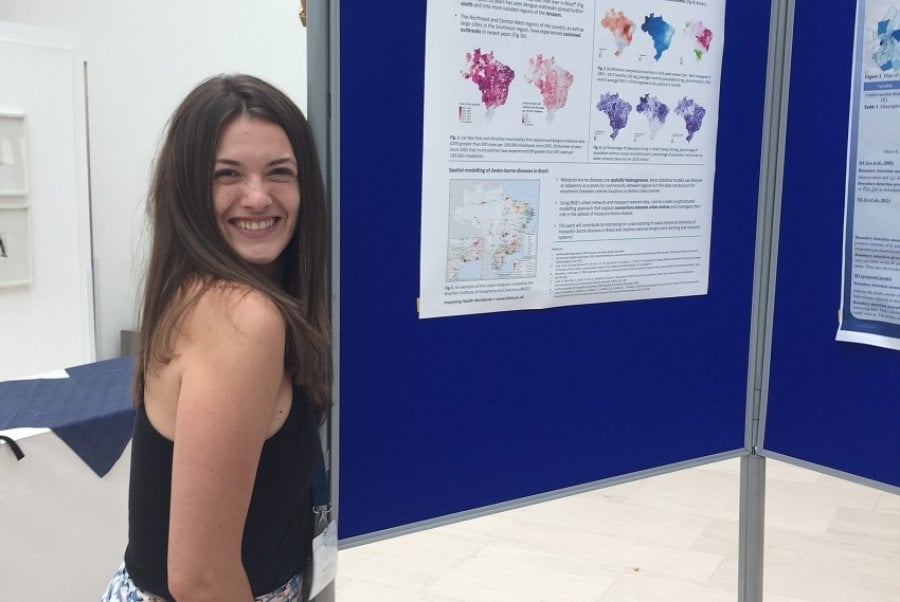
Tell us about your current research
I am currently in the fourth (and final!) year of a PhD which aims to understand the impact of climate change and human movement on the expansion of dengue outbreaks in Brazil.
My current research aim is to develop a statistical modelling framework that will allow me to incorporate Brazil's complex urban network and understand the extent to which human movement has introduced outbreaks into previously dengue-free areas.
Prior work has shown that dengue outbreaks are expanding into previously protected areas of Brazil, I hope that this research will help identify areas at future risk of outbreaks so preventative measures can be taken.
It was a great achievement to recently have part of my research published in PLOS NTDs.
Despite a huge disease burden, neglected tropical diseases such as dengue are not often the focus of global health research or funding, so it’s great to have World NTD Day on 30 January, when attention is brought to these issues that affect millions of people around the world.
Describe your career journey so far
I did a BSc in Mathematics with Statistics at Lancaster University and enjoyed it so much I stayed to complete an MSc in Statistics.
After a frustrating year as a statistician in the pharmaceutical industry, I became a teaching fellow at the Centre of Applied Statistics Courses in UCL. I love teaching statistics to non-statisticians and helping people realise that statistics is not as scary as they often think it is!
What are your goals for the future?
Finish my PhD!
What’s your favourite thing about working at LSHTM?
The interdisciplinary nature of the research carried out at the school. It is great to work with people with such different backgrounds and hear different perspectives on problems.
Do you have any advice or tips for other early career researchers?
Talk to other students! A PhD can be a very isolating experience and it can be hard to remember that others are going through the same experiences and frustrations you are. Taking regular tea breaks with other PhD students has really helped me stop feeling overwhelmed by work.
Another tool I have found helpful when struggling to focus, particularly while working from home, is to organise a "Shut up and write" session with fellow procrastinators. This involves meeting on Zoom and, as the name suggests, shutting up and writing. Generally, we will work for short bursts with microphones off and take regular breaks to chat about what we are working on (or just use the time to catch up!).
How can people get in contact with you?
Email: sophie.lee@lshtm.ac.uk
Twitter: @SophieStats10
Our postgraduate taught courses provide health practitioners, clinicians, policy-makers, scientists and recent graduates with a world-class qualification in public and global health.
If you are coming to LSHTM to study a distance learning programme (PG Cert, PG Dip, MSc or individual modules) starting in 2024, you may be eligible for a 5% discount on your tuition fees.
These fee reduction schemes are available for a limited time only.
